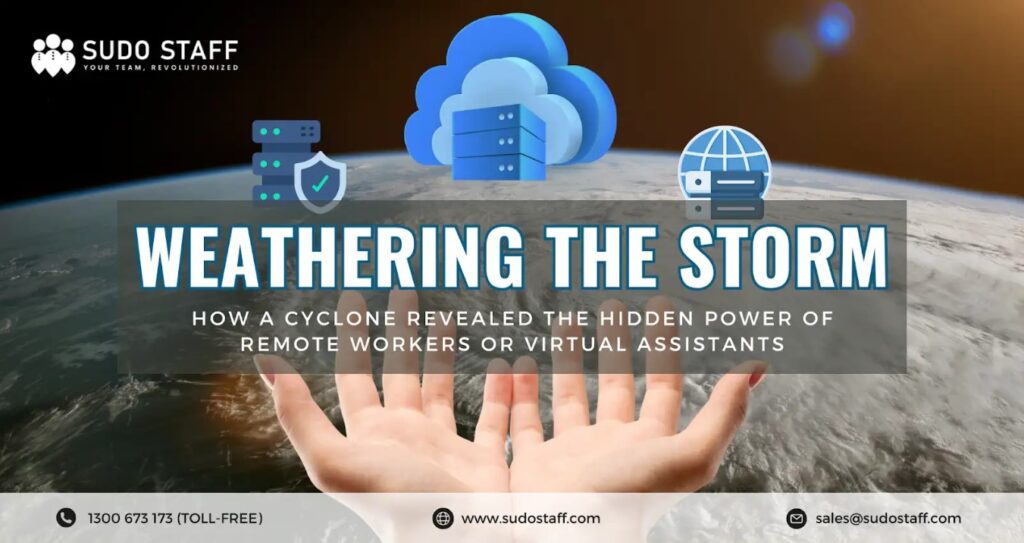In recent weeks, parts of Australia have been battered by one of the most intense cyclones we’ve seen in years. Towns flooded. Power lines down. Offices closed. For many businesses—from bustling legal firms to small accounting practices—the cyclone didn’t just knock down trees. It brought operations to a screeching halt.
But while the winds howled and streets turned to rivers, something fascinating happened behind the scenes: businesses that had remote teams or virtual assistants in place kept running.
The Storm That Shook Brick-and-Mortar Confidence
When natural disasters strike, traditional office setups show their biggest vulnerability. Local teams can’t reach the office. Internet and electricity are disrupted. Physical files become inaccessible. Even phone lines go dead. The result? Missed client deadlines, broken trust, and lost revenue.
For legal and accounting professionals, where confidentiality, accuracy, and timeliness are non-negotiable, that’s a real threat.
But businesses that had embraced remote workers—especially those with teams distributed across various regions or countries—found themselves in a much stronger position. Why? Because resilience was already baked into their systems.
How Remote Workers Became the Unsung Heroes
While onshore teams battled the storm, virtual assistants and remote workers—some located interstate or even overseas—picked up the slack. They continued processing client requests, answering phones, updating case files, and reconciling accounts. All from areas unaffected by the cyclone.
These remote professionals didn’t just help—they saved operations. Some businesses even reported clients never noticing any disruption.
Imagine This: Your Office is Down. Your Business Isn’t.
Here’s what virtual assistants and remote workers can do when disaster strikes:
- Answer client calls and emails when your local reception is unreachable.
- Keep bookkeeping up to date while your on-site accountant is stuck at home.
- Maintain service continuity with cloud-based tools even when your office systems are offline.
- Support your recovery efforts by ensuring admin, legal prep, and client coordination continue.
When your business relies on a single office or a small local team, one local event can stop everything. But when you diversify your workforce—with a mix of in-house and remote staff—you build a safety net. One that catches you when the unexpected happens.
The Bigger Picture: Resilience is the New Efficiency
Remote work isn’t just about saving money or filling gaps. It’s about future-proofing. It’s about giving your business a structure that flexes when the world doesn’t. Cyclones, bushfires, or even unexpected illness—remote teams keep your operations steady.
And let’s be honest: Australia’s wild weather isn’t going anywhere.
Isn’t It Time You Built a Storm-Proof Business?
If this cyclone taught us anything, it’s that flexibility is strength. Whether you run a solo legal practice, a growing accounting firm, or a service-based business that values reliability—having the right virtual assistant or remote worker could be the difference between shutting down and staying strong.
Want to explore how a remote team can give your business the backup it deserves? Let’s talk. Because the next storm doesn’t come with a calendar invite.
